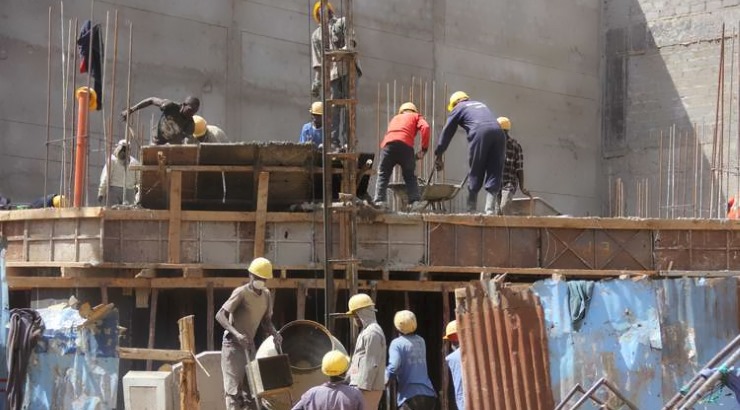Industry News
Skills shortage poses major challenge for home builders
The labour crunch has forced some developers to turn to uncertified artisans thereby compromising standards.

An acute shortage of skilled construction workers is emerging as one of the biggest impediments to overcoming Kenya’s housing deficit.
The skilled labour crunch, which has been attributed to the latest trend where students shun technical education in favour of courses that lead to office jobs, has raised home construction costs – forcing cash-strapped developers to cut back on new project launches.
Labour shortages began to bite mid 2012 as the sector slowly came to life after the 2008-2011 cool off that coincided with the global economic recession.
During the slowdown, many developers suspended their projects mainly due to lack of funding – which rendered thousands of artisans jobless. As a result, the craftsmen were forced to look for work elsewhere and most of them have never looked back.
Meanwhile, the supply of fresh construction workers has weakened since 2012 when President Mwai Kibaki upgraded a significant number of colleges to universities, leaving only a handful of institutions to impart technical and vocational skills to students.
The shortage of masons, electricians, plumbers and painters has significantly pushed up labour costs – forcing some developers to turn to uncertified artisans thereby compromising standards.
READ: Nairobi firms train youths to boost construction skills
A Construction Kenya study has shown that daily dues for certificated artisans now range between Sh2,000 and Sh2,500 up from between Sh500 and Sh1,000 in 2012. Those operating in Nairobi, Mombasa, Kisumu and Nakuru charge more.
Peter Maina, a Kiambu-based painter, told this writer that his services are in high demand and that he is able to negotiate at least Sh 2,000 per day.
To avoid situations where labourers work slowly at sites in order to delay completion of tasks, most developers are now demanding upfront quotation of charges as opposed to daily wages. This has, however, not lowered costs for builders as rising demand for workers has significantly raised wages.
“We’re currently witnessing double-digit percentage wage inflation,” says Gerald Mungai, who is putting up a block of flats in Rwaka, Nairobi.
READ: Germany sketches big plan to tackle Kenya’s skills shortage
Mr Mungai added that some developers, faced with the difficulty of finding skilled workers, are resorting to poaching workers from other developers’ sites by offering small increases in wages.
“There are plenty of developers that are ready to pay higher wages as long as the workers are skilled enough to provide the right quality.”
He lamented that the lack of a national skills database from which certified workers can be sourced has made it extremely difficult for property developers to hire qualified artisans as they have to rely on referrals, which are not always reliable.
The National Construction Authority (NCA) — the regulator of the local construction industry, has recently teamed up with several organisations to train artisans as part of an ambitious plan to train one million craftsmen in the next four years.












